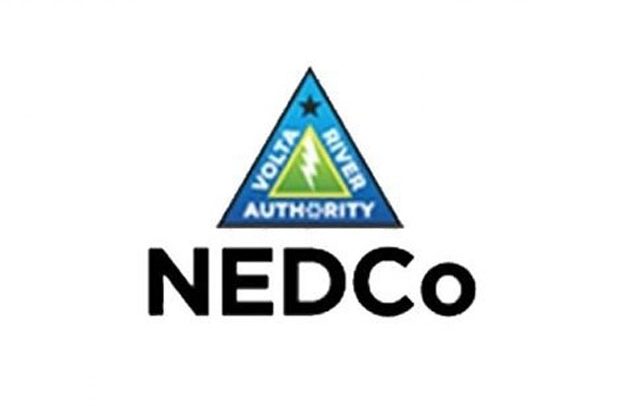The Institute of Statistical Social and Economic Research (ISSER) has revealed that Ghana’s economy lost over $24 billion as a result of dumsor between 2010 and 2016.
To paint a more vivid picture, the lack of sufficient and reliable power cost each citizen in the country access to good roads, quality healthcare, education and other important infrastructure and social amenities that would improve the quality of our living standards.
The Ghana Employers Association (GEA) has reported that over 13,000 people lost their jobs during the power crisis in 2015.
Those hardest hit by dumsor were small-scale businesses and economic enclaves, encompassing food vendors, carpenters, market women, artisans and other small and medium-sized enterprises.
Policy to develop Northern Ghana
Many parts of the North of Ghana have lacked electricity for decades, and the three regions of the North collectively average no more than 50% access to electricity compared to over 95% penetration in the Greater Accra Region alone.
Power and Agriculture
Agriculture remains the dominant economic activity in the Northern Electricity Distribution Company (NEDCo)’s operational area, and the recurrent inadequacies in the supply of water and the lateness of rains to enable farmers to till the farmlands and harvest crops all-year-round to feed Ghanaians and industries contribute to the endemic poverty situations in the northern regions.
For this reason, government’s ‘One-Village, One-Dam’ (OVOD) and the ‘One-District, One Factory’ policies present excellent commercial opportunities capable of lifting the people out of poverty and improving their economic situations.
These policies and projects could be facilitated better by NEDCo, which was weaned off the VRA in 2005 to develop and manage the distribution of power in the Upper East, Upper West, Brong Ahafo and Northern Regions of Ghana.
It is the recognition of the absence of significant investments into NEDCo’s operations over the years that the NEDCo Financial and Operational Turnaround (NFOT) Project under the Power Compact Program was conceptualised.
The MCA Ghana Program is therefore a God-sent intervention for the provision of power for development.
MiDA’s Timely Intervention
The NEDCo Financial and Operational Turnaround Project, one of six projects under the Power Compact Program being implemented by MiDA, with a budget of US$65.7 million, consists of four Sub-Project Activities.
They include improvement in electricity services to the Central Business Area of Tamale, the commercial capital of Northern Ghana; and also improving the customer mix in NEDCo’s operational area by attracting and serving more commercial customers.
Ultimately, MiDA’s interventions under the Project seek to develop NEDCo into an efficient and self-sustaining power utility that will spearhead economic growth in the northern part of Ghana by investing in building the capacity of the Utility Company to recover its operational costs and provide quality service to customers at affordable prices.
NEDCo, as the counterpart of the Electricity Company of Ghana (ECG) in the South, is no doubt a critical electricity distributor.
Central to its financial and operational viability is the role of an MCC-funded Services Provider, in the form of a world class private sector energy services consultant.
Anticipated Impact
The MCA’s US$65.7 million grant funds, being invested into the NEDCo operations, is timely. The entire NEDCo network area, which covers vibrant commercial centres such as Techiman, Sunyani, Kintampo, Wa, Bolgatanga and Sawla, will all benefit from these interventions.
The four proposed projects have the potential to increase NEDCo’s electricity sales by an average of approximately US$11 million per year between 2018 and 2025, representing approximately 4 percent of total electricity sales and will increase total annual revenue by approximately 9 percent per year.
Sustainable power will lead to an expanded customer base that would include a significant number of industrial customers, a major boost to NEDCo’s sustainability.
The AgDevCo Connection
Besides improving the efficiency of their operations in the Tamale Metropolis, the Compact’s intervention will particularly support the agricultural industry by providing power to factories, agribusiness processing operations and farms.
It will provide reliable medium voltage electric service to the newly-established 5,700 hectare AgDevCo Farming Hub, located close to Babator in the Bole District of the Northern Region.
Feasibility Studies on the Project indicate that over 150,000 farmers are likely to benefit from the AgDevco Connection.
This will be a major complement to the Government’s ‘Planting for Food and Jobs’ Programme.
Local farmers can also take advantage of the electrical infrastructure provided and benefit from the irrigation resources available through the AgDevCo Program.
In line with the national agenda to ensure universal electricity access by the year 2020, the village of Babator and some other villages along the road from Bamboi to the AgDevCo Site will soon benefit directly from some 37km of LV power to be extended under the programme.
This has the potential to ignite various small-scale business activities, such as sheanut processing, and unleash the potential of the Mole National Park as a tourism destination.
Empowering people to access power
The Tamale Central Market and the Tamale Timber Market are earmarked to benefit directly from the intervention to provide reliable and quality power to these important commercial hubs in the Tamale Metropolitan Assembly.
The long overdue Tamale Project will involve changing the old transformers that feed these social infrastructures, replacing the very old and sagging electrical cables and providing security lighting for the markets.
Implementing Entity Agreement (IEA)
An IEA is a condition precedent to the release and the channelling of Compact funds to a Project Implementer through the Accountable Entity.
As with all MCC-funded projects, NEDCo will be required to sign an IEA with MiDA to facilitate the implementation of the project.
The progress of work on the Projects envisaged under the NEDCo IEA will require the commitment and collaboration of the Accountable Entity, which is the Millennium Development Authority (MiDA), and other entities such as the Volta River Authority (VRA), Environmental Protection Agency (EPA), Lands Commission, PURC, etc.


